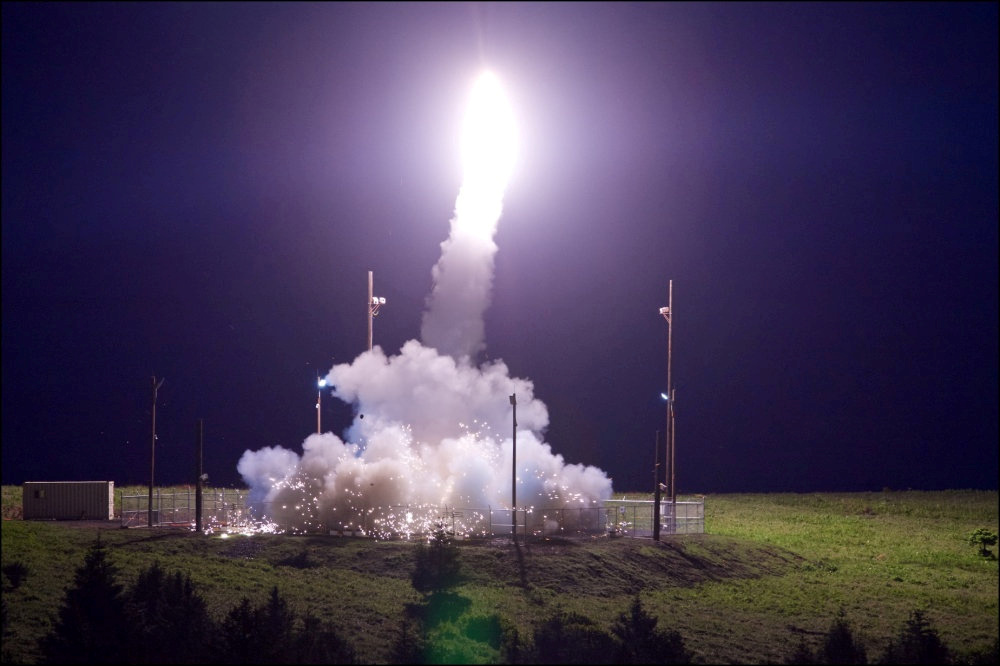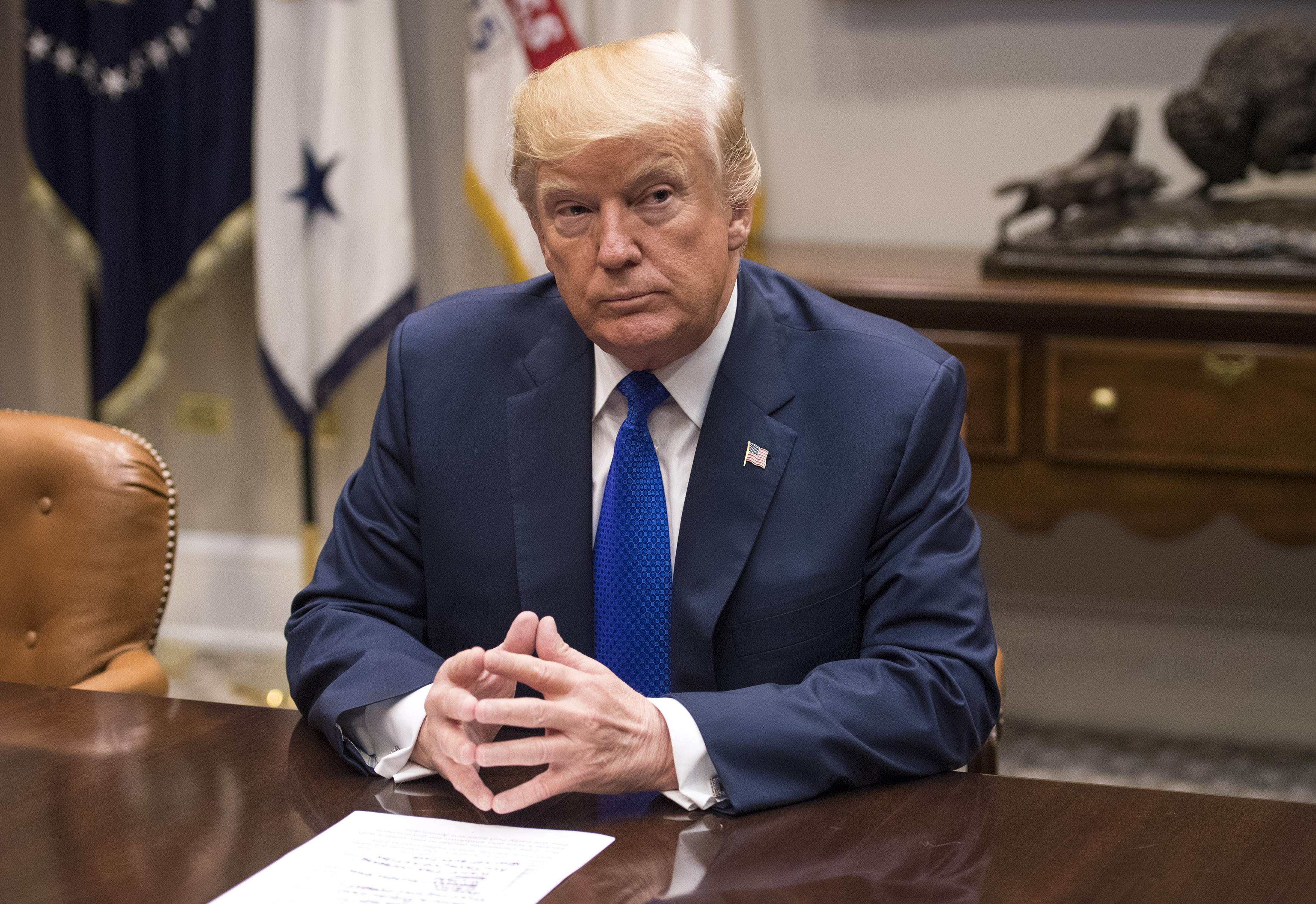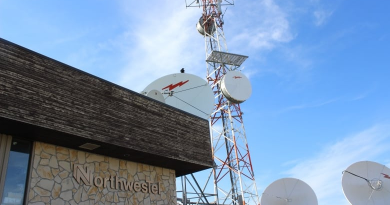Trump signs defense bill to allow more missile interceptors in Alaska

President Trump Tuesday signed the 2018 National Defense Authorization Act into law.
“This historic legislation demonstrates our unwavering commitment to our men and women in uniform,” Trump said at a White House signing ceremony. “The greatest fighting force in the history of the world. And we’re making it a lot better than even that.”
The law authorizes nearly $700 billion for the military, about $150 billion above the spending cap established by the Budget Control Act of 2011. (Of the amount authorized, $65 billion is allocated for “Overseas Contingency Operations,” a fund Congress created to be exempt from the cap.)

Sen. Dan Sullivan praised the bill’s inclusion of more money for missile defense, including $200 million for a new missile field at Fort Greely, near Fairbanks, and 20 new interceptors that would be housed there. Sullivan is a member of the Senate Armed Services Committee, one of the committees responsible for drafting the annual authorization bill.
The new law sets policy, and even though it includes dollar figures, it does not guarantee funding. Matt Vallone, research director at the consulting firm Avascent Analytics, says the authorizing law is more of an opening bid in the yearly debate about how much to spend on defense. Vallone said the members of the appropriations committees usually aim for a lower number.
“Appropriators are the ones who make the final decision on what spending is going to be, and they’re the ones who will have final say when they pass an appropriations omnibus either later this month or more likely sometime in January,” Vallone said.
Vallone said he expects the final spending bill will be a few billion less than what the law signed today authorizes. But with the North Korean threat looming, Vallone said he expects Congress will approve increased spending on missile defense.
Related stories from around the North:
Canada: Surveillance and search and rescue top Canada’s Arctic defence priorities, Radio Canada International
Denmark: Denmark’s new defence agreement renews focus on protecting the Baltic, Radio Canada International
Finland: Finland-US military exercises decision expected next spring, Yle News
Norway: Russia’s Northern Fleet takes on key role in search and rescue exercise with Norway, The Independent Barents Observer
Russia: What Russia’s new Navy Strategy says about the Arctic, The Independent Barents Observer
Sweden: Sweden’s Prime Minister reaffirms commitment to country’s defense, Radio Sweden
United States: Here’s what’s in the U.S. Defense Department’s new Arctic strategy, Alaska Dispatch News



